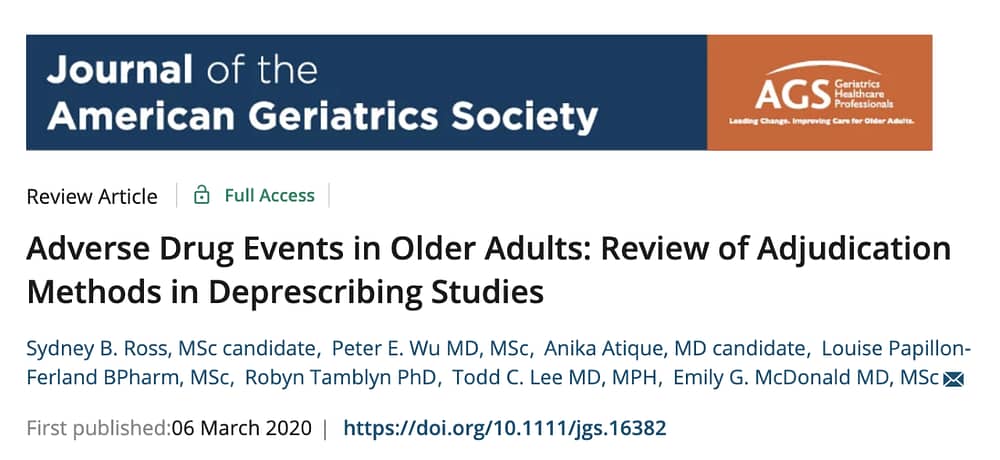Ross S, et al. Adverse Drug Events in Older Adults: Review of Adjudication Methods in Deprescribing Studies. J Am Geriatr Soc. 2020; doi: 10.1111/jgs.16382
A recent review article published in the Journal of the American Geriatrics Society examined adverse drug event (ADE) adjudication methods in deprescribing studies. Ross and colleagues of McGill University in Montreal, Canada reviewed 175 articles and found 10 different types of adjudication methods for identifying ADEs. Among existing methods, the Leape and Bates method and the Naranjo algorithm adapted for drug withdrawal have features that make them better suited than others for evaluating ADEs in studies of deprescribing. However, all methods had several weaknesses including being tailored to detect ADEs for a single medication and generally detecting adverse drug reactions instead of ADEs more broadly. Additionally, no method was developed specifically for deprescribing contexts. The authors emphasize the need for a standardized method that is (1) intuitive for researchers; (2) geared towards clinical judgment; (3) sensitive to time constraints; (4) sensitive to ADEs broadly; (5) able to detect adverse drug withdrawal events (ADEs that arise as a result of discontinuation of a medication, or ADWEs) Standardizing this outcome will allow comparison across future deprescribing interventions.
Emily McDonald, corresponding author of the manuscript and Assistant Professor of Medicine at McGill University said, “We hope our review calls attention to the need to tailor existing ADE adjudication methods to meet the needs of clinical trials into deprescribing, so that we may optimally capture this important outcome.”


